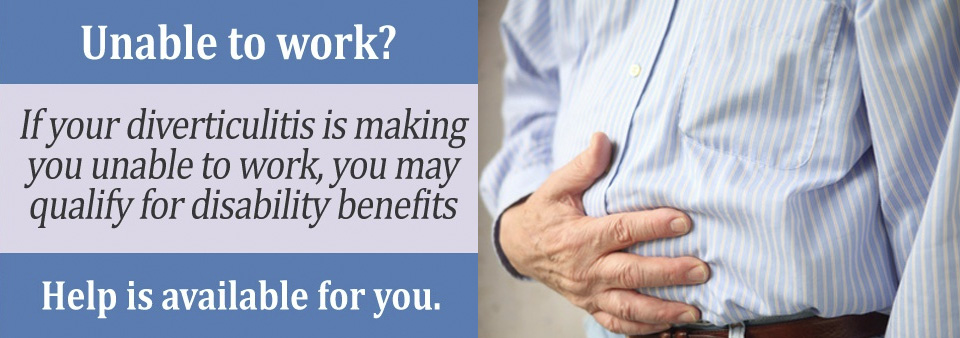Diverticulitis is a condition that can cause significant pain and discomfort, impacting daily life and mobility.
For individuals living with this condition, a common question is whether they can qualify for a Blue Badge. This article explores the eligibility criteria for obtaining a Blue Badge and how Diverticulitis fits into these guidelines.
Understanding Diverticulitis
Diverticulitis occurs when small, bulging pouches (diverticula) in the digestive tract become inflamed or infected. Symptoms can include severe abdominal pain, fever, nausea, and a significant impact on daily activities. In severe cases, it can lead to complications that require medical intervention.
Blue Badge Eligibility Criteria
To qualify for a Blue Badge, applicants must meet certain criteria that demonstrate significant mobility issues. Here are the primary conditions for automatic qualification:
- Receiving the higher rate of the mobility component of the Disability Living Allowance (DLA).
- Receiving a Personal Independence Payment (PIP) with a score of 8 points or more under the ‘moving around’ activity.
- Being registered blind (severely sight impaired).
- Receiving a War Pensioners’ Mobility Supplement.
- Receiving a lump sum benefit within tariff levels 1 to 8 of the Armed Forces and Reserve Forces (Compensation) Scheme, with a certified permanent and substantial disability affecting mobility.
- Receiving the mobility component of PIP with 10 points specifically for descriptor E under the ‘planning and following journeys’ activity due to overwhelming psychological distress.
For a detailed list of medical conditions that may qualify for a Blue Badge, you can visit our article on What Medical Conditions Qualify for a Blue Badge?.
Diverticulitis and Blue Badge Eligibility
Diverticulitis itself does not automatically qualify an individual for a Blue Badge. However, the impact of the condition on mobility and daily life can be considered. Here are some factors that may be relevant:
- Severity of Symptoms: Individuals with severe pain that affects their ability to walk or perform daily activities may be considered.
- Impact on Mobility: If Diverticulitis leads to significant mobility issues, such as difficulty walking or requiring frequent rest, it may support a Blue Badge application.
- Medical Evidence: Providing detailed medical records and evidence from healthcare professionals can strengthen the application. This should include information about the diagnosis, treatment, and impact on daily life.
Applying for a Blue Badge with Diverticulitis
The application process for a Blue Badge involves several steps:
- Gather Medical Evidence: Collect all relevant medical records, including diagnosis, treatment history, and a statement from your healthcare provider about how Diverticulitis affects your mobility.
- Complete the Application Form: Fill out the Blue Badge application form, providing detailed information about your condition and how it impacts your daily life.
- Submit Supporting Documents: Along with the application form, submit all supporting medical documents and evidence.
- Assessment: Your local council may require an assessment to determine eligibility. This could involve a physical assessment or review of your medical records.
Important Considerations
While applying for a Blue Badge with Diverticulitis, it is essential to clearly articulate how the condition affects your mobility. Here are some tips:
- Be Specific: Provide detailed descriptions of your symptoms and how they impact your ability to walk and perform daily activities.
- Include All Relevant Information: Ensure that all medical evidence is up-to-date and includes comprehensive details about your condition.
- Seek Professional Help: If needed, seek assistance from a healthcare professional or a support organization to help with the application process.
For more detailed information on the Blue Badge application process and medical conditions that qualify, visit the following article on our website:
Common Questions and Misconceptions
1. Can I automatically get a Blue Badge with Diverticulitis?
No, Diverticulitis does not automatically qualify for a Blue Badge. Eligibility is based on the severity of symptoms and their impact on mobility.
2. What kind of medical evidence do I need for my application?
You need detailed medical records, a diagnosis of Diverticulitis, treatment history, and a statement from your healthcare provider explaining how the condition affects your mobility.
3. Can I apply for a Blue Badge if I have other conditions along with Diverticulitis?
Yes, if you have additional conditions that affect your mobility, you should include this information in your application to strengthen your case.
While Diverticulitis itself does not automatically qualify an individual for a Blue Badge, the severity of symptoms and their impact on mobility can support an application. By providing comprehensive medical evidence and clearly explaining how the condition affects your daily life, you can enhance your chances of obtaining a Blue Badge. For more information on qualifying conditions and the application process, visit our additional resources.
Understanding the eligibility criteria and effectively navigating the application process can help those with Diverticulitis access the mobility benefits provided by the Blue Badge scheme, making daily activities more manageable and less stressful.

